Photo
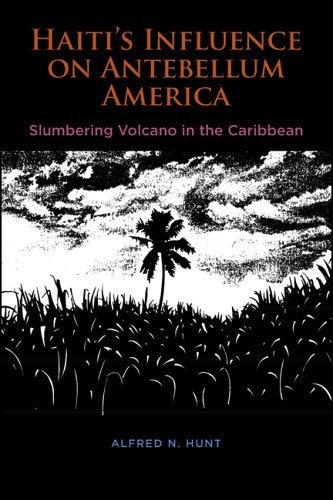
Haiti’s Influence on Antebellum America: Slumbering Volcano in the Caribbean
Alfred N. Hunt
The Haitian Revolution began in 1791 as a slave revolt on the French colonial island of Saint Domingue and ended thirteen years later with the founding of an independent black republic. Waves of French West Indians – slaves, white colonists, and free blacks – fled the upheaval and flooded southern U.S. ports – most notably New Orleans – bringing with them everything from French opera to voodoo. Alfred N. Hunt discusses the ways these immigrants affected southern agriculture, architecture, language, politics, medicine, religion, and the arts. He also considers how the events in Haiti influenced the American slavery-emancipation debate and spurred developments in black militancy and Pan-Africanism in the United States. By effecting the development of racial ideology in antebellum America, Hunt concludes, the Haitian Revolution was a major contributing factor to the attitudes that led to the Civil War.
0 notes
Photo
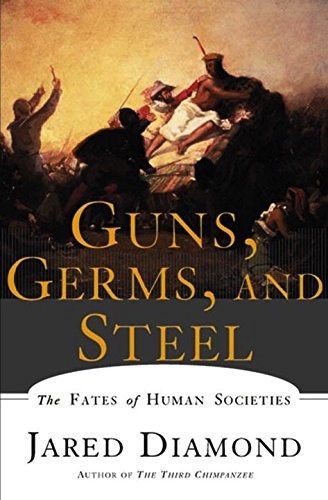
Guns, Germs, and Steel: The Fates of Human Societies
Jared M. Diamond
“Fascinating…. Lays a foundation for understanding human history.”―Bill Gates In this “artful, informative, and delightful” (William H. McNeill,
New York Review of Books) book, Jared Diamond convincingly argues that geographical and environmental factors shaped the modern world. Societies that had had a head start in food production advanced beyond the hunter-gatherer stage, and then developed religion –as well as nasty germs and potent weapons of war –and adventured on sea and land to conquer and decimate preliterate cultures. A major advance in our understanding of human societies, Guns, Germs, and Steel chronicles the way that the modern world came to be and stunningly dismantles racially based theories of human history. Winner of the Pulitzer Prize, the Phi Beta Kappa Award in Science, the Rhone-Poulenc Prize, and the Commonwealth club of California’s Gold Medal.
0 notes
Photo

Evicted: Poverty and Profit in the American City
Matthew Desmond
***WINNER OF THE 2017 PULITZER PRIZE FOR GENERAL NONFICTION
**In Evicted, Harvard sociologist and MacArthur “Genius” Matthew Desmond follows eight families in Milwaukee as they struggle to keep a roof over their heads. Hailed as “wrenching and revelatory” (The Nation), “vivid and unsettling” (New York Review of Books), Evicted* transforms our understanding of poverty and economic exploitation while providing fresh ideas for solving one of 21st-century America’s most devastating problems. Its unforgettable scenes of hope and loss remind us of the centrality of home, without which nothing else is possible.
NEW YORK TIMES BESTSELLER ****|**** WINNER OF THE NATIONAL BOOK CRITICS CIRCLE AWARD FOR NONFICTION | ****WINNER OF THE PEN/JOHN KENNETH GALBRAITH AWARD FOR NONFICTION | ****WINNER OF THE ANDREW CARNEGIE MEDAL FOR EXCELLENCE IN NONFICTION | FINALIST FOR THE LOS ANGELES TIMES BOOK PRIZE | WINNER OF THE 2017 HILLMAN PRIZE FOR BOOK JOURNALISM | WINNER OF THE CHICAGO TRIBUNE HEARTLAND PRIZE**
NAMED ONE OF THE BEST BOOKS OF THE YEAR by The New York Times Book Review • The Boston Globe • The Washington Post • NPR • Entertainment Weekly • The New Yorker • Bloomberg • Esquire • Buzzfeed • Fortune • San Francisco Chronicle • Milwaukee Journal Sentinel • St. Louis Post-Dispatch • Politico • The Week • Bookpage • Kirkus Reviews • Amazon • Barnes and Noble Review • Apple • Library Journal • Chicago Public Library • Publishers Weekly • Booklist • Shelf Awareness**
0 notes
Photo

Their Eyes Were Watching God
Zora Neale Hurston
“A deeply soulful novel that comprehends love and cruelty, and separates the big people from the small of heart, without ever losing sympathy for those unfortunates who don’t know how to live properly.” —Zadie Smith
One of the most important and enduring books of the twentieth century, *Their Eyes Were Watching God *brings to life a Southern love story with the wit and pathos found only in the writing of Zora Neale Hurston. Out of print for almost thirty years—due largely to initial audiences’ rejection of its strong black female protagonist—Hurston’s classic has since its 1978 reissue become perhaps the most widely read and highly acclaimed novel in the canon of African-American literature.
0 notes
Photo
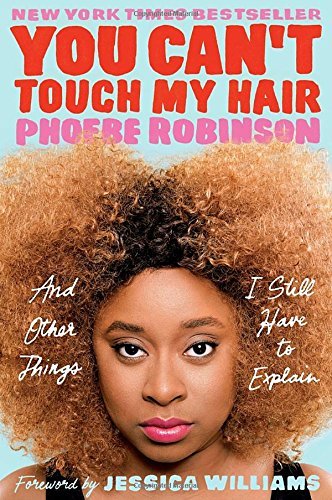
You Can't Touch My Hair: And Other Things I Still Have to Explain
Phoebe Robinson
A hilarious and timely essay collection about race, gender, and pop culture from upcoming comedy superstar and 2 Dope Queens podcaster Phoebe Robinson
**Being a black woman in America means contending with old prejudices and fresh absurdities every day. Comedian Phoebe Robinson has experienced her fair share over the years: she's been unceremoniously relegated to the role of "the black friend," as if she is somehow the authority on all things racial; she's been questioned about her love of U2 and Billy Joel ("isn’t that . . . white people music?"); she's been called "uppity" for having an opinion in the workplace; she's been followed around stores by security guards; and yes, people do ask her whether they can touch her hair all. the. time. Now, she's ready to take these topics to the page—and she’s going to make you laugh as she’s doing it.
Using her trademark wit alongside pop-culture references galore, Robinson explores everything from why Lisa Bonet is "Queen. Bae. Jesus," to breaking down the terrible nature of casting calls, to giving her less-than-traditional advice to the future female president, and demanding that the NFL clean up its act, all told in the same conversational voice that launched her podcast, 2 Dope Queens, to the top spot on iTunes. As personal as it is political, You Can't Touch My Hair examines our cultural climate and skewers our biases with humor and heart, announcing Robinson as a writer on the rise.
0 notes
Photo

The Mothers: A Novel
Brit Bennett
A dazzling debut novel from an exciting new voice, *The Mothers *is a surprising story about young love, a big secret in a small community—and the things that ultimately haunt us most.**
Set within a contemporary black community in Southern California, Brit Bennett's mesmerizing first novel is an emotionally perceptive story about community, love, and ambition. It begins with a secret.
"All good secrets have a taste before you tell them, and if we'd taken a moment to swish this one around our mouths, we might have noticed the sourness of an unripe secret, plucked too soon, stolen and passed around before its season."
It is the last season of high school life for Nadia Turner, a rebellious, grief-stricken, seventeen-year-old beauty. Mourning her own mother's recent suicide, she takes up with the local pastor's son. Luke Sheppard is twenty-one, a former football star whose injury has reduced him to waiting tables at a diner. They are young; it's not serious. But the pregnancy that results from this teen romance—and the subsequent cover-up—will have an impact that goes far beyond their youth. As Nadia hides her secret from everyone, including Aubrey, her God-fearing best friend, the years move quickly. Soon, Nadia, Luke, and Aubrey are full-fledged adults and still living in debt to the choices they made that one seaside summer, caught in a love triangle they must carefully maneuver, and dogged by the constant, nagging question: What if they had chosen differently? The possibilities of the road not taken are a relentless haunt.
In entrancing, lyrical prose, *The Mothers *asks whether a "what if" can be more powerful than an experience itself. If, as time passes, we must always live in servitude to the decisions of our younger selves, to the communities that have parented us, and to the decisions we make that shape our lives forever.
0 notes
Photo
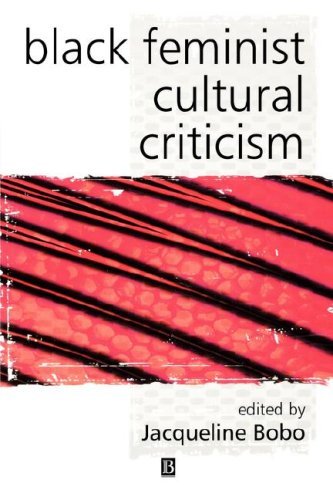
Black Feminist Cultural Criticism (Keyworks in Cultural Studies)
Black Feminist Cultural Criticism is the first comprehensive analysis of the full range of Black women's creative achievements. In this outsdanding collection, writers and scholars in literature, film, television, theatre, music, art, material culture, and other cultural forms explicate Black women's artistry within the context of an activist framework. The contributors are concerned with the politics of cultural production and the ways in which Black women have confronted institutional and social barriers.
0 notes
Photo
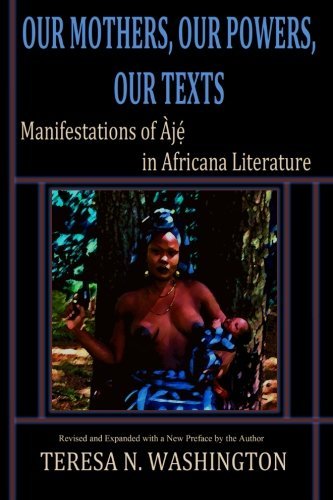
Our Mothers, Our Powers, Our Texts: Manifestations of Aje in Africana Literature
Teresa N Washington
This is the revised and expanded edition of Teresa N. Washington's groundbreaking book Our Mothers, Our Powers, Our Texts: Manifestations of Aje in Africana Literature. In Yoruba language and culture, Aje signifies both a phenomenal spiritual power and the human beings who exercise that power. Aje is the birthright of Africana women who are revered as the Gods of Society. While Africana men can have Aje, its owners and controllers are Africana women. Because it is an African female power, and due to its invisibility, ubiquity, and profundity, Aje is often maligned as witchcraft.
However, as Teresa N. Washington reveals in Our Mothers, Our Powers, Our Texts, Aje is central to the Yoruba ethos, worldview, and cosmology. Not only is it essential to human creation and artistic creativity, but as a force of justice and retribution, Aje is vital to social harmony and balance. Washington analyzes forms, figures, and forces of Aje in the Yoruba world, in the Caribbean Islands, in Latin America, and in African America. Washington's research reveals that with the exile and enslavement of millions of Africans, Aje became a global force and an essential ally in organizing insurrections, soothing shattered souls, and reminding the dispossessed of their inherent divinity. From her in-depth exploration of Aje in Pan-African history and orature, Washington guides readers through rich analyses of the symbolic, methodological, and spiritual manifestations of Aje that are central to important works by Africana writers but are rarely elucidated by Western criticism.
Our Mothers, Our Powers, Our Texts includes innovative readings of works by many Africana writers, including Zora Neale Hurston, Toni Morrison, Ben Okri, Wole Soyinka, Jamaica Kincaid, and Ntozake Shange. This revised and expanded edition of Our Mothers, Our Powers, Our Texts will appeal to scholars of Africana literature, African religion and philosophy, gender studies, and comparative literature. Devotees of Africana spiritual systems will find this book to be indispensable.
0 notes
Photo
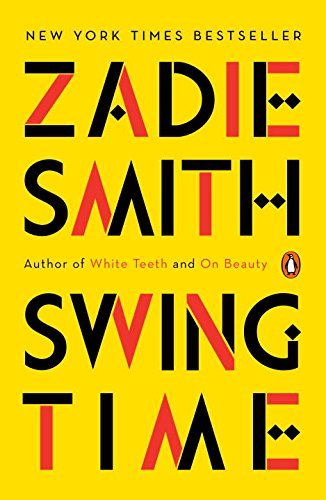
Swing Time: A Novel
Zadie Smith
An ambitious, exuberant new novel moving from North West London to West Africa, from the multi-award-winning author of White Teeth and On Beauty.
Two brown girls dream of being dancers—but only one, Tracey, has talent. The other has ideas: about rhythm and time, about black bodies and black music, what constitutes a tribe, or makes a person truly free. It's a close but complicated childhood friendship that ends abruptly in their early twenties, never to be revisited, but never quite forgotten, either.
Tracey makes it to the chorus line but struggles with adult life, while her friend leaves the old neighborhood behind, traveling the world as an assistant to a famous singer, Aimee, observing close up how the one percent live.
But when Aimee develops grand philanthropic ambitions, the story moves from London to West Africa, where diaspora tourists travel back in time to find their roots, young men risk their lives to escape into a different future, the women dance just like Tracey—the same twists, the same shakes—and the origins of a profound inequality are not a matter of distant history, but a present dance to the music of time.
0 notes
Photo

My Soul Looks Back: A Memoir
Jessica B. Harris
In this captivating new memoir, award-winning writer Jessica B. Harris recalls a lost era—the vibrant New York City of her youth, where her social circle included Maya Angelou, James Baldwin, and other members of the Black intelligentsia.
In the Technicolor glow of the early seventies, Jessica B. Harris debated, celebrated, and danced her way from the jazz clubs of the Manhattan's West Side to the restaurants of the Village, living out her buoyant youth alongside the great minds of the day—luminaries like Maya Angelou, James Baldwin, and Toni Morrison. *My Soul Looks Back *is her paean to that fascinating social circle and the depth of their shared commitment to activism, intellectual engagement, and each other.
Harris paints evocative portraits of her illustrious friends: Baldwin as he read aloud an early draft of If Beale Street Could Talk, Angelou cooking in her California kitchen, and Morrison relaxing at Baldwin’s house in Provence. Harris describes her role as theater critic for the New York Amsterdam News *and editor at then burgeoning Essence magazine; *star-studded parties in the South of France; drinks at Mikell’s, a hip West Side club; and the simple joy these extraordinary people took in each other’s company. The book is framed by Harris’s relationship with Sam Floyd, a fellow professor at Queens College, who introduced her to Baldwin.
More than a memoir of friendship and first love My Soul Looks Back is a carefully crafted, intimately understood homage to a bygone era and the people that made it so remarkable.
0 notes
Photo

The Fire Next Time
James Baldwin
A national bestseller when it first appeared in 1963, The Fire Next Time galvanized the nation and gave passionate voice to the emerging civil rights movement. At once a powerful evocation of James Baldwin's early life in Harlem and a disturbing examination of the consequences of racial injustice, the book is an intensely personal and provocative document. It consists of two "letters," written on the occasion of the centennial of the Emancipation Proclamation, that exhort Americans, both black and white, to attack the terrible legacy of racism. Described by The New York Times Book Review as "sermon, ultimatum, confession, deposition, testament, and chronicle...all presented in searing, brilliant prose," The Fire Next Time stands as a classic of our literature.
0 notes
Photo

Citizen: An American Lyric
Claudia Rankine
Claudia Rankine's bold new book recounts mounting racial aggressions in ongoing encounters in twenty-first-century daily life and in the media. Some of these encounters are slights, seeming slips of the tongue, and some are intentional offensives in the classroom, at the supermarket, at home, on the tennis court with Serena Williams and the soccer field with Zinedine Zidane, online, on TV-everywhere, all the time. The accumulative stresses come to bear on a person's ability to speak, perform, and stay alive. Our addressability is tied to the state of our belonging, Rankine argues, as are our assumptions and expectations of citizenship. In essay, image, and poetry, Citizen is a powerful testament to the individual and collective effects of racism in our contemporary, often named "post-race" society.
0 notes
Photo

Sister Outsider: Essays and Speeches
Audre Lorde
In this charged collection of fifteen essays and speeches, Lorde takes on sexism, racism, ageism, homophobia, and class, and propounds social difference as a vehicle for action and change. Her prose is incisive, unflinching, and lyrical, reflecting struggle but ultimately offering messages of hope. This commemorative edition includes a new foreword by Lorde-scholar and poet Cheryl Clarke, who celebrates the ways in which Lorde's philosophies resonate more than twenty years after they were first published.
These landmark writings are, in Lorde's own words, a call to “never close our eyes to the terror, to the chaos which is Black which is creative which is female which is dark which is rejected which is messy which is...”
0 notes
Photo

But Some of Us Are Brave: Black Women’s Studies
Akasha (Gloria T.) Hull (Editor), Patricia Bell-Scott (Editor), Barbara Smith (Editor), Brittney C. Cooper (Afterword)
Originally published in 1982, All the Women Are White, All the Blacks Are Men, But Some of Us Are Brave: Black Women’s Studies is the first comprehensive collection of black feminist scholarship. Featuring contributions from Alice Walker and the Combahee River Collective, this book is vital to today’s conversation on race and gender in America. With an afterword from Salon columnist Brittney Cooper.
Coeditors Akasha (Gloria T.) Hull, Patricia Bell-Scott, and Barbara Smith are authors and former women's studies professors.
Brittney Cooper is an assistant professor of women and gender studies and Africana studies at Rutgers University and a co-founder of the Crunk Feminist Collective.
0 notes
Photo
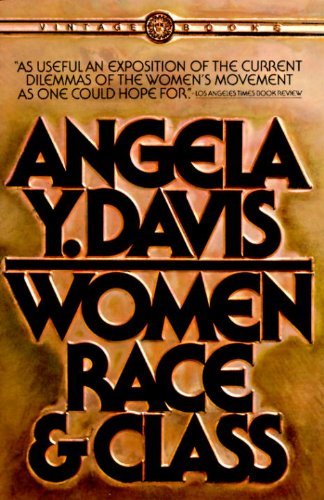
Women, Race, & Class
Angela Y. Davis
A powerful study of the women's liberation movement in the U.S., from abolitionist days to the present, that demonstrates how it has always been hampered by the racist and classist biases of its leaders. From the widely revered and legendary political activist and scholar Angela Davis.
1 note
·
View note
Photo
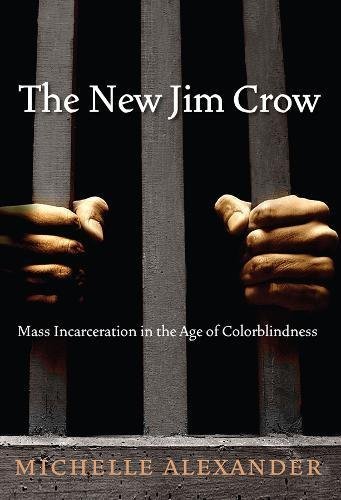
The New Jim Crow: Mass Incarceration in the Age of Colorblindness
Michelle Alexander
Once in a great while a book comes along that changes the way we see the world and helps to fuel a nationwide social movement. The New Jim Crow is such a book. Praised by Harvard Law professor Lani Guinier as "brave and bold," this book directly challenges the notion that the election of Barack Obama signals a new era of colorblindness. With dazzling candor, legal scholar Michelle Alexander argues that "we have not ended racial caste in America; we have merely redesigned it." By targeting black men through the War on Drugs and decimating communities of color, the U.S. criminal justice system functions as a contemporary system of racial control—relegating millions to a permanent second-class status—even as it formally adheres to the principle of colorblindness. In the words of Benjamin Todd Jealous, president and CEO of the NAACP, this book is a "call to action."
Called "stunning" by Pulitzer Prize–winning historian David Levering Lewis, "invaluable" by the Daily Kos, "explosive" by Kirkus, and "profoundly necessary" by the Miami Herald, this updated and revised paperback edition of The New Jim Crow, now with a foreword by Cornel West, is a must-read for all people of conscience.
0 notes
Photo
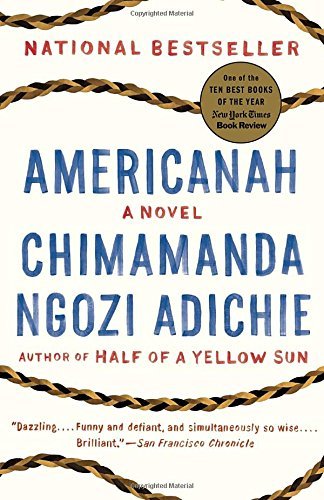
Americanah
Chimamanda Ngozi Adichie
Ifemelu and Obinze are young and in love when they depart military-ruled Nigeria for the West. Beautiful, self-assured Ifemelu heads for America, where despite her academic success, she is forced to grapple with what it means to be black for the first time. Quiet, thoughtful Obinze had hoped to join her, but with post-9/11 America closed to him, he instead plunges into a dangerous, undocumented life in London. Fifteen years later, they reunite in a newly democratic Nigeria, and reignite their passion—for each other and for their homeland.
0 notes